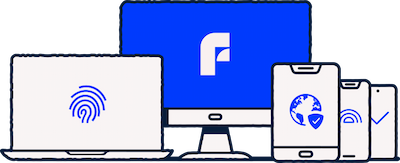- Products
- Renew
- Articles
- Support
- Free tools
- F-Secure Text Message CheckerCheck with AI if a text message is a scam
- F‑Secure Online Shopping CheckerCheck for free if a website is safe to buy from
- F‑Secure Identity Theft CheckerCheck if your personal information has been part of a data breach
- F‑Secure Strong Password GeneratorCreate strong passwords for free
- F‑Secure IP CheckerCheck your IP address and location
- F‑Secure Online ScannerScan and clean your PC for free
- F‑Secure Router CheckerIs your internet connection safe?
- View all free tools
- Scam protection
- My F‑Secure
Does my device have a virus?
“Computer virus” is often used to describe all the different types of malware. But how can you know if your device has a virus or malware? Find out below.


The types of malware differ. Some are meant to be detected, whereas others are intended to stay hidden. But even the hidden ones can sometimes leave signs.

What to look for in Mac and Windows computers
A common myth is that malware is only a problem for computers running on Windows operating system. While it’s less common, Macs can be affected as well. You can look for these symptoms on both operating systems:
Programs or internet slow down
Excessive freezing and crashing
Emergence of unknown ads, popups, or files
Browser changing the home page, unknown toolbars
Unknown sent messages or emails
Windows appearing and vanishing immediately
Unfortunately, these signs aren’t always a clear indication of malware infection. There are many other possible reasons for your computer acting up. Just like a headache can be a sign of sickness, dehydration, muscle tension or other problems.
Mobile devices aren’t safe either
Web criminals are where the users are. Luckily, an Android device or an iPhone won’t encounter a traditional computer virus. But there are other types of malware they have to deal with. Signs of malware infection can be ambiguous on mobile devices, too. Look for these symptoms to detect an Android or iPhone virus infection:
Strange and unwanted apps
Data drain
Apps or operating system crashes
Ads popping up
Odd charges in your phone or credit card bill
Bank authentication suspiciously slow
Even though it’s rare, it is possible for an iOS device to have malware. Especially if you download apps from unofficial app stores.

Get all the online protection you need
F‑Secure Total protects all your devices from malware. It also includes a VPN that guards your privacy online, and a password manager that monitors your online identity and sends you data breach alerts. Get all the online protection you need in one, handy subscription.
You can try it for free for 30 days, with no credit card required.













